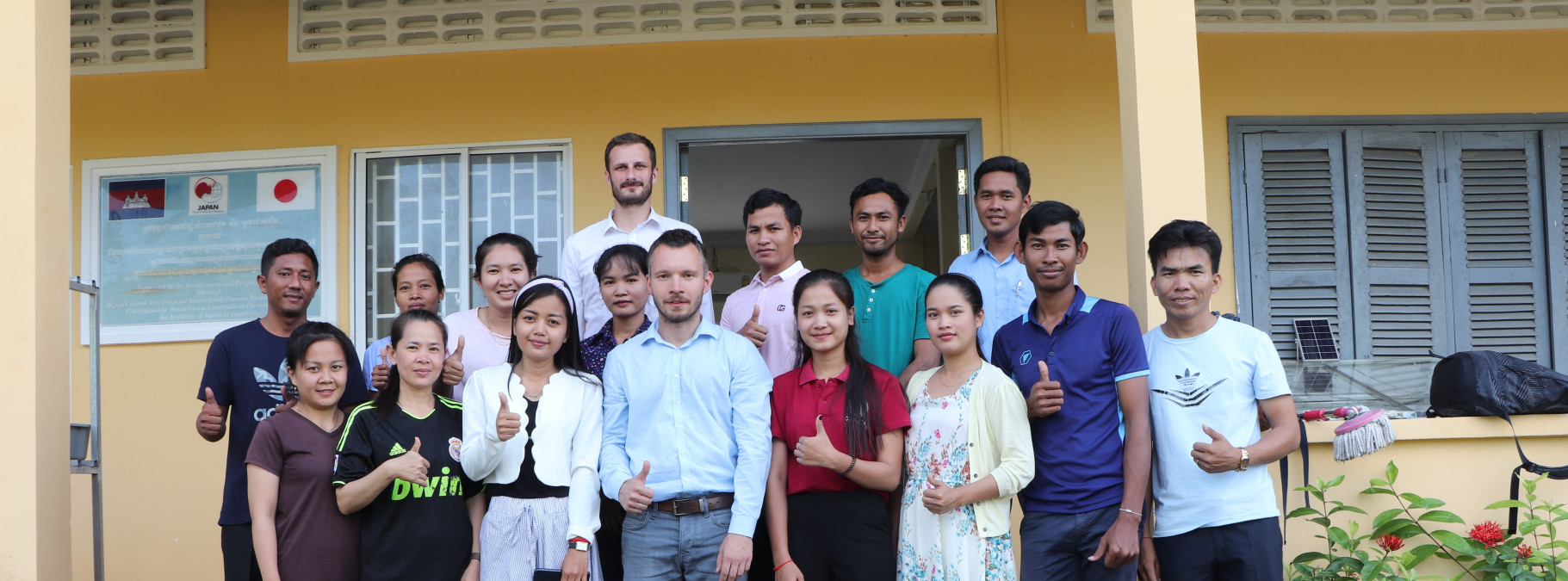Strengthening vocational education in rural Cambodia
Published: Jul 10, 2020 Reading time: 3 minutes Share: Share an articleIn rural Cambodia, more than 50% of students drop out of school before the 11th Grade. Many factors contribute to this high rate of truancy, including poverty, lack of parental support, and poor academic performance. But while leaving school to enter the labor force might make financial sense at the time, the long-term impacts of that decision – on the student and on society – are profound.

Equal access to technical education
To keep students in the classroom longer, secondary education in rural Cambodia needs to prepare young people for the types of jobs that await them. To that end, People in Need (PIN) has partnered with Czech and local agencies to launch the “Agro-processing Career Development, Technical Training and Improved Vocational Education for Youth (ACTIVE for Youth)” project, a two-year initiative to prepare graduates for work in the agro-food processing Industry.
Rattana Kep, PIN’s project manager in Cambodia, says the goal is to help young people develop “basic and concrete food processing skills” to help them on the job. “With a newly developed curriculum and internship programme, we will be able to introduce students to the agro-food processing enterprise, thus putting them on solid footing for their employment journey.”
ACTIVE for Youth is being piloted at King Norodom Sihamoni General and Technical High School (KNHS) in Kampong Chhnang Province, and is implemented in cooperation with the Czech University of Life Science (CULS) and the Ministry of Education, Youth and Sport Cambodia, with financial support from the Czech Development Agency. The project aims to give young people in rural areas equal access to technical education.
A top-to-bottom renovation
The first phase of the project involved upgrading the training facilities at KNHS. PIN Cambodia assisted in the renovation efforts, helping to improve the lab’s hygienic standards. The result is a new processing lab equipped with adequate electricity and ample water supply, as well as air-conditioning, washing stations, a vacuum machine, blender, oven, slicer machine, manual sealing machine, sterilizer, and dehydrator. The renovation ensures that the facilities are safe and ready to be used and will give students a better environment in which to learn.
“The old lab had cramped spaces and not much equipment,” says Sokea, a food processing teacher at KNHS. “Now, the facilities are much better, with a larger processing lab and separated rooms. There is also up-to-date equipment and air-con, which makes it much more convenient for students and instructors,” she adds.
Capacity building for teachers
Another challenge was finding enough qualified instructors to lead the trainings. To improve the competencies of technical teachers at KNHS, PIN coordinated with trainers from CULS in Prague to develop locally-applicable curriculum and food-processing teaching methodologies.
“Through pedagogy training, I gained additional skills that help me teach my students more effectively,” explained Thaily, another food processing instructor at KNHS. “I have also received training on how to operate the new equipment, as well as processing techniques – like proper food storage, baking, and yogurt making.”
Looking ahead
Currently, there are 57 students enrolled in the food processing program at KNHS. Sokea says this is initial cohort is the perfect size, and will give her the ability to teach but also to improve her own expertise. “I will spend more time on researching to gain better knowledge, skills, and experiences, to efficiently deliver the best knowledge to my students, as well as to improve the food processing program,” she says.
Going forward, the project at KNHS is expected to serve as a model for other technical high schools in Cambodia. “Our next step is to enhance the school’s financial capacity in business development and cooperation with the food processing enterprise,” says Rattana. “The school’s business development will create new opportunities for technical students to gain entrepreneurship skills along with food processing knowledge.”









